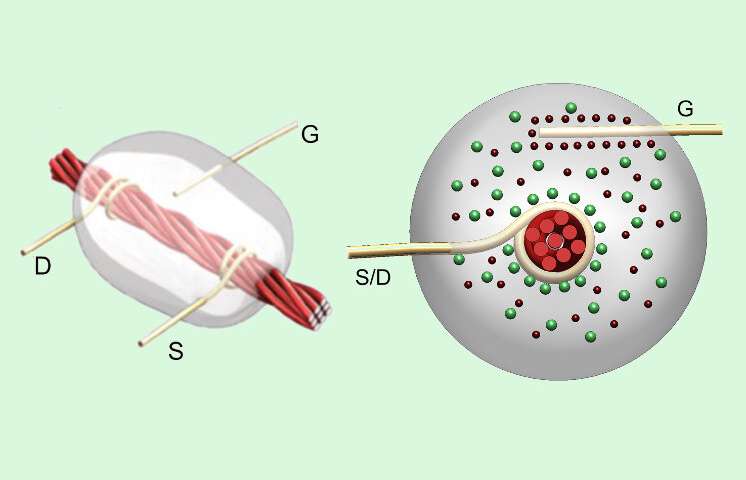A team of engineers has managed to create thread-based transistors from linen thread. This enables them to create electronic devices that have been created using thin threads that can be woven into the fabric, worn on the skin, or even implanted surgically for the sake of diagnostic monitoring. The completely flexible electronic devices can allow for diverse applications that can conform to various shapes while enabling free movement without hampering the function.

A study was published in ACS Applied Materials and Interfaces where the authors described their efforts of engineering the first thread-based transistors (TBTs) that can be developed into simple and all-thread based logic circuits and integrated circuits. These circuits will replace the rigid component of several flexible devices, and when combined with thread-based sensors, completely flexible and multiplexed devices can be created.

The field of flexible electronics is growing exponentially, and the majority of the devices are attaining flexibility by patterning metals and semiconductors into ‘wavy’ structures that were bendable or using essentially flexible materials as conducting polymers. These ‘soft’ electronics are making it possible for the application of devices that can conform and stretch with the biological tissue – skin, heart, or brain tissue – in which they are embedded.

Thread-based electronics, when compared with electronics based on flexible materials and polymers, offer enhanced flexibility, material diversity, and can be manufactured without requiring any cleanrooms as per the researchers. The Tufts engineers were also able to create an array of thread-based temperature, strain, glucose, optical sensors, and even microfluidic threads that would be able to collect samples or dispense drugs from/to the surrounding tissue. The thread-based transistors that have been created in this study enable the creation of logic circuits that help control the behavior and response of these components.
Rachel Owyeung is a graduate student at Tufts University School of Engineering, and the first author of the study said, ‘In laboratory experiments, we were able to show how our device could monitor changes in sodium and ammonium concentrations at multiple locations. Theoretically, we could scale up the integrated circuit we made from the TBTs to attach a large array of sensors tracking many biomarkers, at many different locations using one device.’

Sameer Sonkusale is a professor of electrical and computer engineering at Tufts University School of Engineering and corresponding author of the study, and said, ‘The development of the TBTs was an important step in making completely flexible electronics, so that now we can turn our attention toward improving design and performance of these devices for possible applications. There are many medical applications in which real-time measurement of biomarkers can be important for treating disease and monitoring the health of patients. The ability to fully integrate a soft and pliable diagnostic monitoring device that the patient hardly notices could be quite powerful.’


